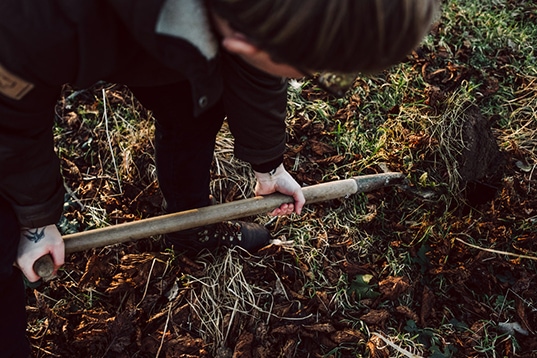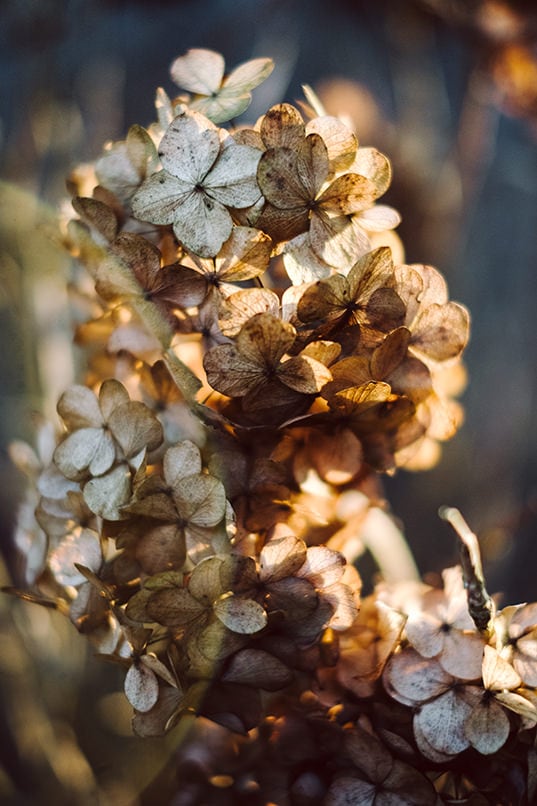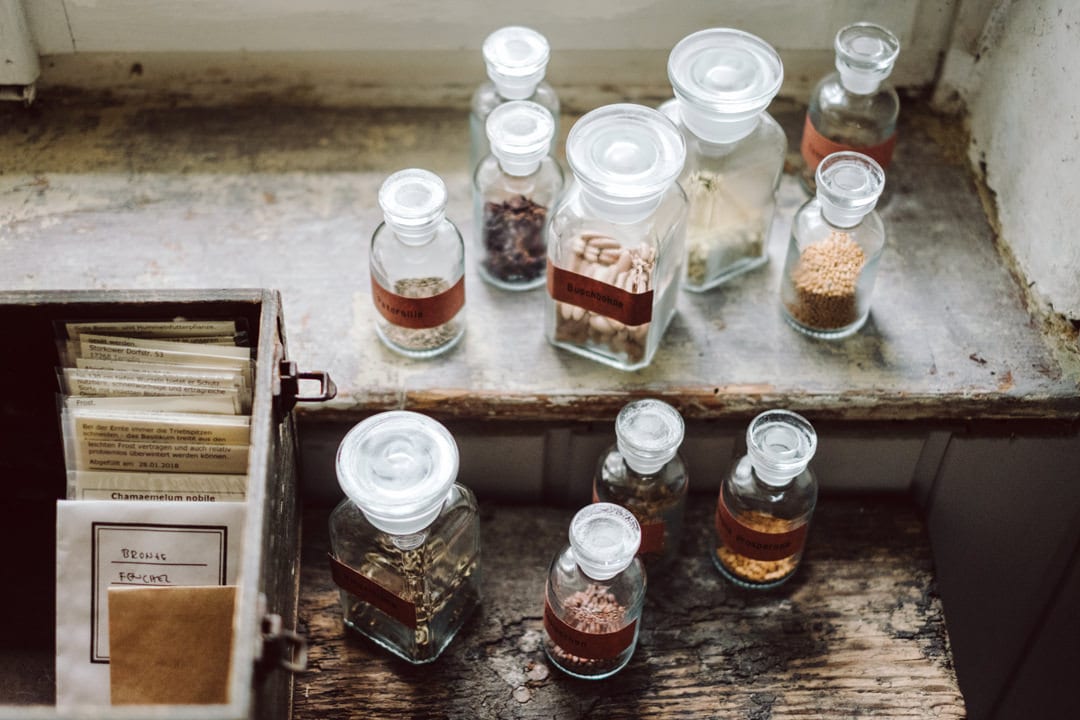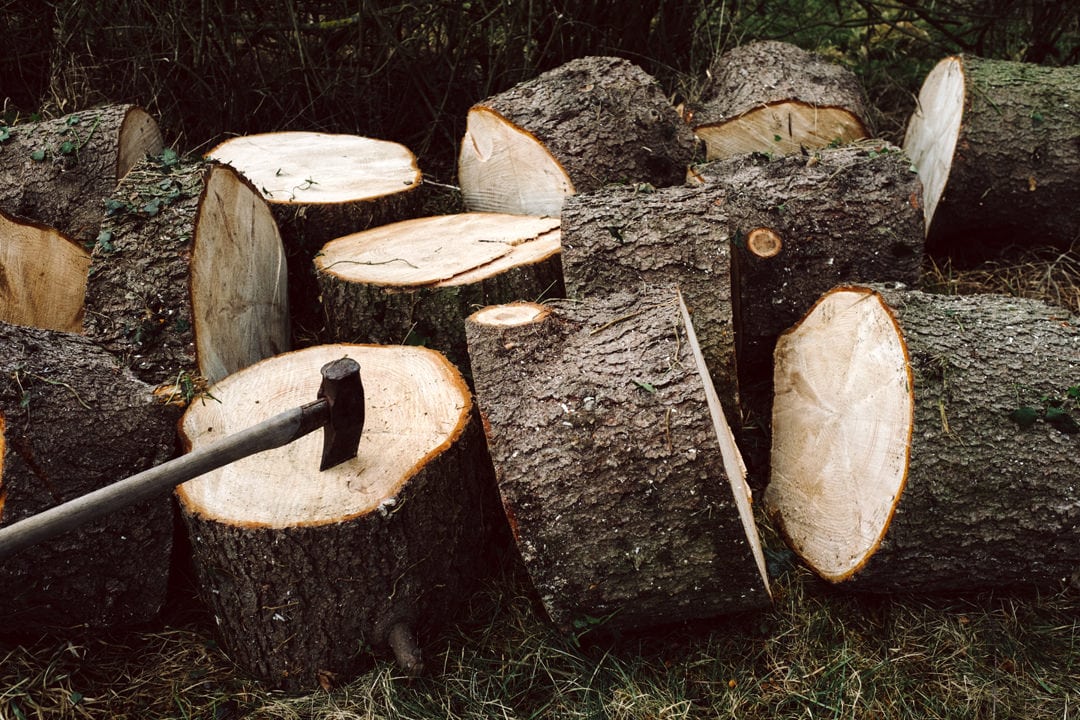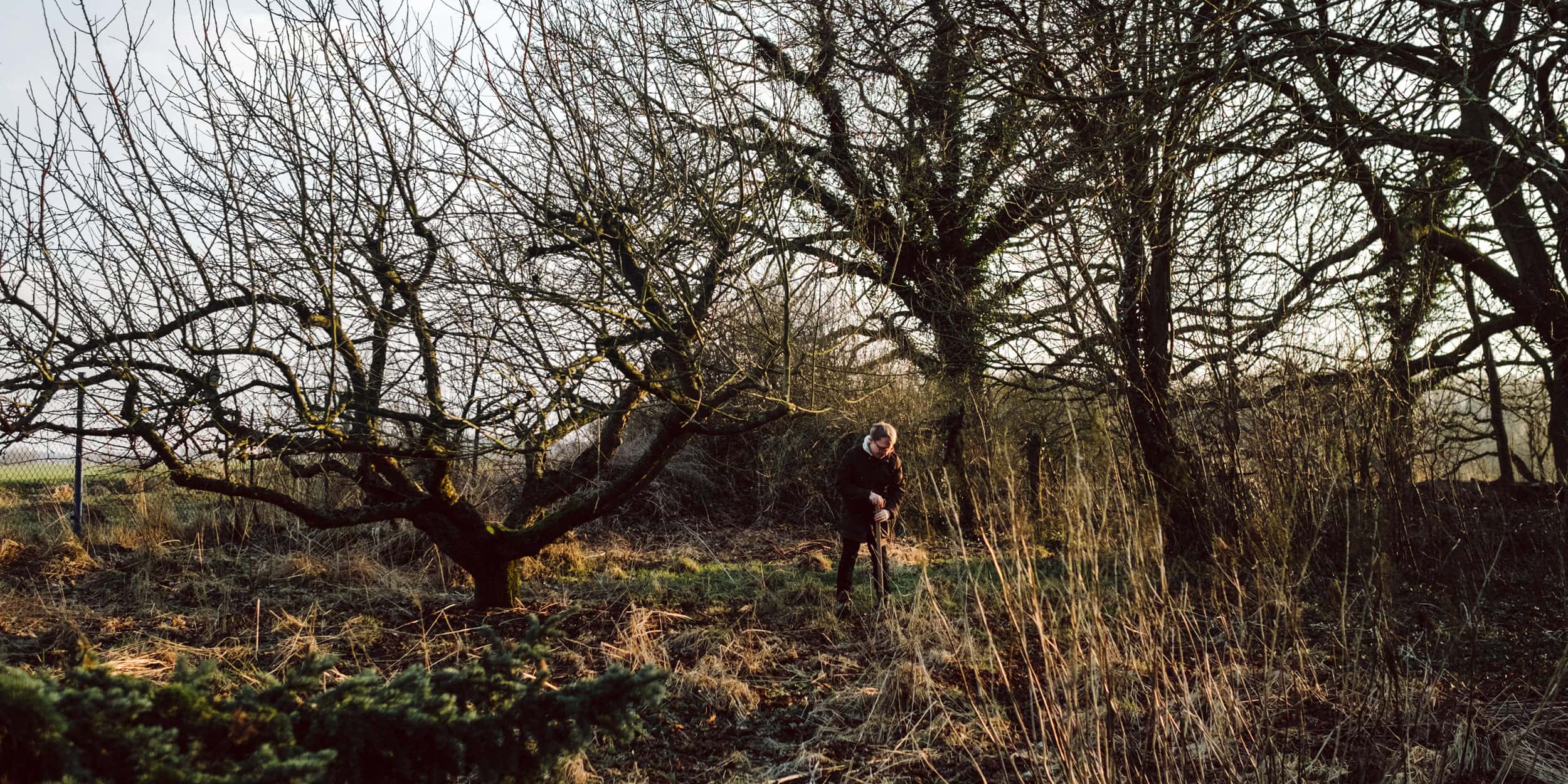
Thus, to interfere as less as possible with nature is the best method if you want to do something for the environment.” Of course, we inherently interfere with nature as soon as we plan directed growing of fruits and vegetables – it is called permanent agriculture, not permanent agrinature. Still, we can do this in a way in which we contribute to a nutritious soil by using intercropping.
So far, so good. The big task now is to analyse our property, to observe, to decide where the best place is for which plant, and which plant benefit from each other so we can draw on a lush garden in summer. Out of curiosity we took some samples from the soil to measure the ph value on different spots of our property. We also already found some plants and wild herbs which let us guess the values. All this we want to include in our planning. The light and shadow conditions especially have an impact, but also the structures which are already there and which we can use to our advantage. The southern house front reflects the sun, thus projecting more warmth. Here, we want to have sun loving plants. Also, we can use the bricks of the rather useless stonewall as a heat accumulator somewhere else. An already planted hedge can be used as windbreak and to give shade. All this slowly forms a picture and we get a feeling for our property.
Now, we ponder which fruits and vegetables we just have to grow. Since we could not collect as much seeds from our balcony as we need we use old breed seeds from Manufactum and especially the seeds from Dreschflegel. Grete is one of the producers. By the way, her farm, which we visited last year several times, is only 5km from our house. Her seeds are perfectly adapted to the local conditions. After everything is examined, sorted and assigned, we can start growing the first plants.
And if everything goes awry, moles and snails eat all our harvest, or something else we can’t imagine yet just goes wrong, we already know that Grete’s delicious vegetables are growing just around the corner. We definitively won’t starve…
The past weeks were basically filled with waiting. Waiting for the documents to be proved, appointments to be made and contracts to be signed. To prevent the bureaucratic back and forth spoil our anticipation for our settlers house we made a lot of plans, pored over books about gardening, looked for suiting furniture and at least once dreamed of how it will be, until a few days ago we finally had the keys in hands. Now, exciting weeks and months lay ahead. To realize all the ideas and dreams we had will be pretty tough and sometimes even impossible. We noticed pretty fast this house has its own character. However, we want to embark on it, discover the house’s character and work with it and thus, changing as little as possible but enough to transform it into a cosy home. More soon!
A big project will be to lay out a garden on our property. Since the garden year 2018 is ready to start we already have itchy fingers. Still, we are afraid we may have too high expectations of ourselves. Even if we learned a lot the past years on growing vegetables, we are still rookies. So we may hope for some beginner’s luck. We won’t approach this project without a plan, of course. We set the goal to cultivate our land as permaculture (permanent agriculture) and to establish a sustainable circular economy, which regulates itself with its own rhythm and to enable diverse living beings to live together. This way, a food cycle can be established in which every animal meets its natural predators, thus contributing to a healthy garden. We want to create spaces for all the little helpers. Hedgehogs, bees, earthworms, birds, butterflies, and even spiders will be welcome in our garden. Permaculture basically means for us to observe and find into nature. To understand nature to the fullest probably lays outside the boundaries of human intellect, but this should not prohibit us to live in harmony with her. Humans love to change the processes of nature to optimize them and to produce even more. But nature is perfect already. Graham Bell wrote in his book 'The Permaculture Garden': “Ecological damages are usually the result of human interference.
